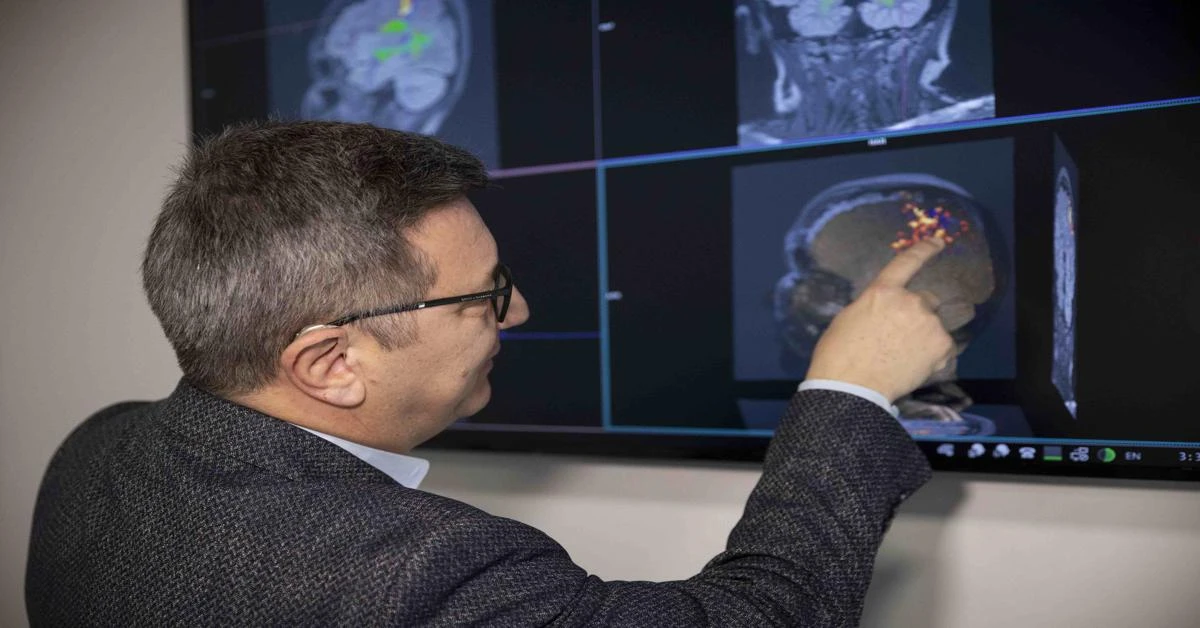Stress alters brain’s time perception: Research

Ankara University scientists discover that dopamine and stress influence the brain’s perception of time
A research by scientists from Ankara University revealed that dopamine and stress factors alter the brain’s perception of time.
Research findings, which will be published in an international journal, show that while stress disrupts the brain’s executive control over time perception, individuals with high dopamine levels perceive time more accurately.
The study is expected to open new horizons in understanding the mysteries of diseases such as depression, schizophrenia, and Parkinson’s, which cause time perception disorders, and in monitoring their diagnosis and treatment.
Professor Dr. Metehan Cicek, a faculty member at Ankara University’s Faculty of Medicine Department of Physiology and the Neuroscience and Neurotechnology Joint Application and Research Center (NOROM) Human Neuroimaging Laboratory, provided a statement to an Anadolu Agency reporter regarding the findings of the scientific project supported by TUBITAK. The project, titled “The Effect of Social Stress on Time Perception: Epigenetics and Brain Imaging Study,” aimed to explore the impact of social stress on time perception using epigenetics and brain imaging techniques.
Cicek, who returned to Türkiye after studying neuroscience at various universities in the U.S. and has been working on how the higher-level functions of the brain occur for about 30 years, explained that she used brain imaging methods in these studies.
Regarding his latest research, Cicek said, “I have always wondered about this; during an accident I had, seconds passed like minutes, but time never passed. I wonder what happened in my brain during this time. In other words, why did time pass slowly when I was under stress or during emotional intensity? I started working on this question because I was curious,” he said.
Stating that this topic was included in the thesis of two doctoral students, Cicek said that in the first of them, they investigated the effect of social stress on time perception.
Saying that they conducted two experiments with ethics committee approval in their TUBITAK-supported studies, he added: “In the first experiment, under the magnetic resonance (MR) imaging technique, we showed 45 healthy adults images that created social stress and made them feel like ‘failure.’ In this case, we imaged their brains. We saw that social stress causes changes in the perception of time.
The experiment results show that under normal conditions, people perceive time as passing faster than it is. However, when experiencing stress, their perception of time becomes more accurate, creating a slow-motion effect. This phenomenon occurs because certain regions of the brain decrease in activity during the task of time perception under stress. As a result, stress disrupts the brain’s executive control over time perception. Consequently, during periods of stress, the brain alters its perception of time, almost as if time is elongated, inadvertently extending the time available for making critical decisions, potentially life-saving ones.”
Patients with depression
Cicek stated that in the second experiment, they examined DNA methylation from the saliva samples of 44 healthy individuals and said, “This examination revealed that individuals with high dopamine levels in their brains perceive time more accurately. In other words, in cases of stress, dopamine levels increase, and the brain perceives time more accurately.”
Pointing out that dopamine is related to reward, Cicek said, “For example, when we eat, or when our team wins a match, the dopamine system is activated. Why is the perception of time different in different individuals? This is related to the dopamine level, the reward system. On the other hand, individuals with high brain dopamine levels are activated during the time perception task. It has been observed that brain activations have become more efficient. This finding may explain why we feel time passes more slowly under stress.”
Regarding the application of research results, Cicek stated: “If we combine the results with our previous research, we see that the perception of time is impaired in patients with depression. Patients with depression do not benefit from rewards; nothing makes them happy. In other words, there is a problem in the dopamine system. Therefore, it makes more sense that the perception of time is impaired in cases where there is a problem in the dopamine system. With the results of two studies, we explained why time is perceived differently in humans under stress.
We expect the research findings to open new horizons in understanding the mystery of diseases such as Parkinson’s and schizophrenia, which cause time perception disorders, and in monitoring their diagnosis and treatment. The results will also be useful in understanding the cause of time perception disorders, especially in depression patients.”
Source: AA
#haber#



